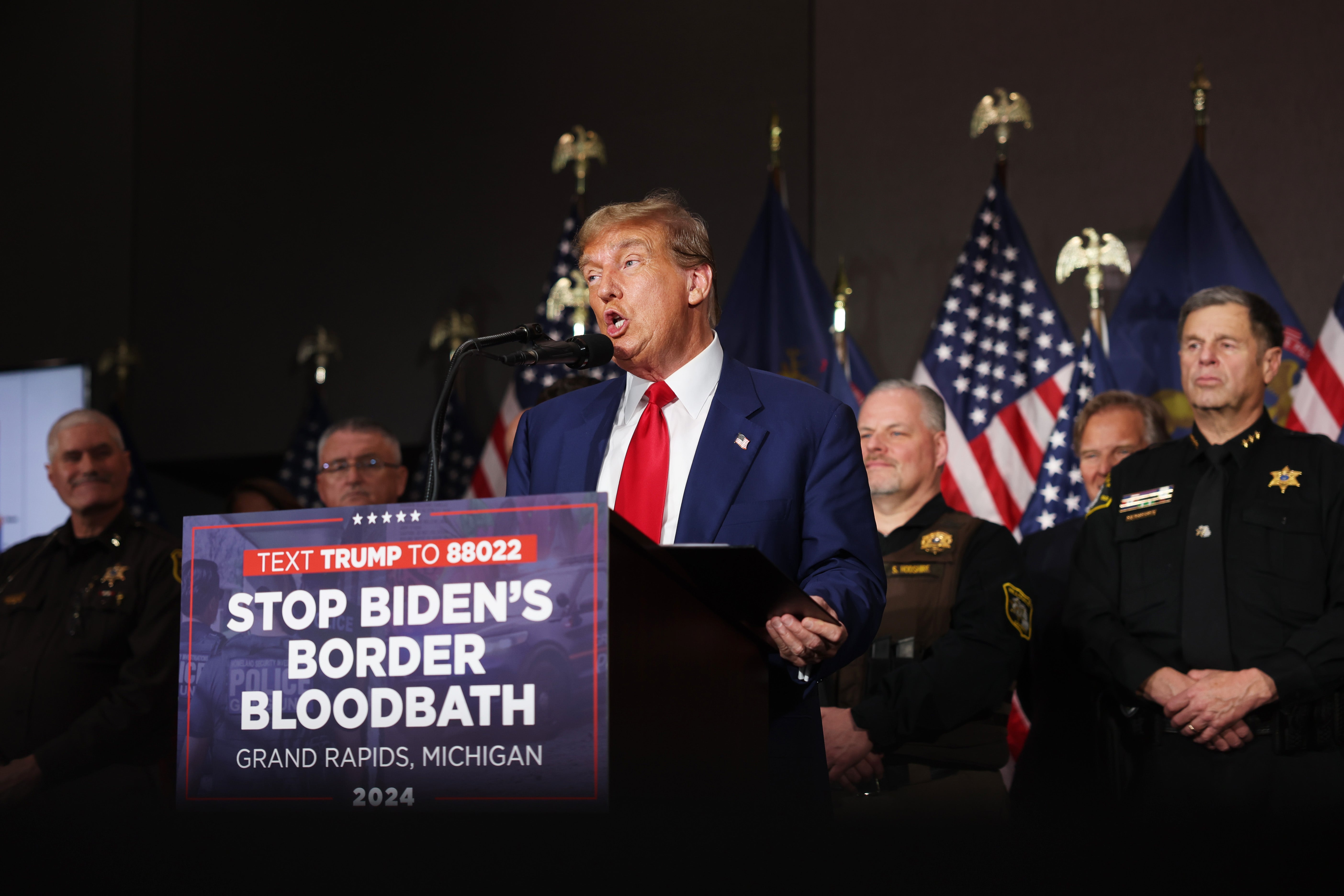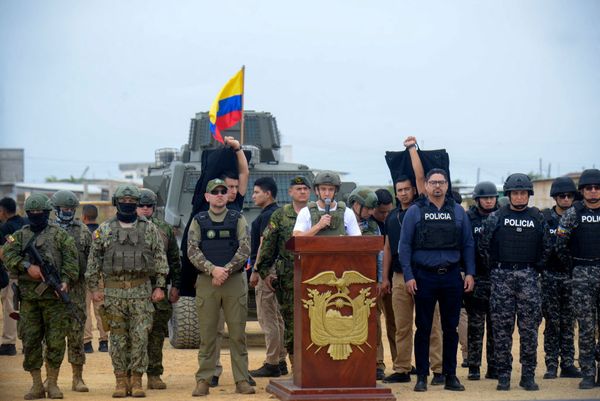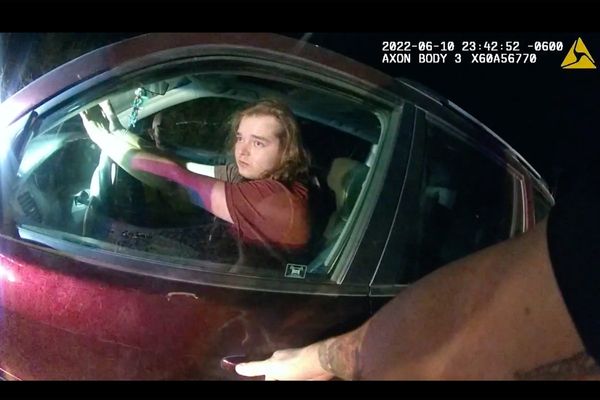President Donald Trump could invoke a centuries-old law that would authorize him to deploy the United States military to the southern border and order them to assist law enforcement in carrying out his domestic policies.
The Insurrection Act of 1807, a rarely used law, allows the president to utilize federal military troops or federalize National Guard troops in order to suppress uncontrollable protests or other civil disturbance situations.
Upon entering office in January, Trump signed an executive order declaring a national emergency at the U.S.–Mexico border. He also directed Defense Secretary Pete Hegseth and Homeland Security Secretary Kristi Noem to provide a report within 90 days about the state of the border to determine “whether to invoke the Insurrection Act of 1807.”
As that 90-day detail approaches, here’s what to know about the Insurrection Act of 1807.
What is the Insurrection Act of 1807?
When invoked, the Insurrection Act gives the president the authority to deploy the U.S. military or National Guard inside the country to suppress events such as rebellion, insurrection and civil disorder or to enforce the law in a situation where it has become “impracticable” to do so.
The Insurrection Act is not one piece of legislation; rather, it is the combination of a series of laws enacted by Congress between 1792 and 1871 that specifically address utilizing the military within the U.S.
The act is an exception to the Posse Comitatus Act, which typically prevents the federal government from using the federal military or National Guard to enforce domestic policies. Once invoked, the act temporarily suspends Posse Comitatus.
Troops can be deployed under three sections of the Insurrection Act.
The first is if a state legislature or governor requests federal aid to suppress an insurrection in that state.
The second allows the president to invoke it without a state’s permission whenever they consider “unlawful obstructions, combinations, or assemblages, or rebellion” make it “impracticable to enforce the laws of the United States.”
The third also allows the president to invoke the act without a state’s permission under two scenarios. If “any insurrection, domestic violence, unlawful combination, or conspiracy” hinders the state’s ability or desire to execute laws that specifically protect people’s constitutional rights. Or if “any insurrection, domestic violence, unlawful combination, or conspiracy” obstructs the executive of the law or course of justice under those laws.
But before the president can consider the Insurrection Act, they first must order a proclamation asking insurgents or those obstructing the enforcement of laws to disperse peacefully within a certain amount of time.

Why does Trump want to use it?
The president has broadly sought to utilize the extent of his authority to circumvent the traditional, slow-paced steps to enact his policies.
He has also never been shy about his desire to utilize federal troops or the National Guard to control mass protests in states where he feels the governor is not doing enough to restore order.
He threatened to invoke it during his first term, according to the New York Times, during the George Floyd protests.
At one campaign rally in Iowa in 2023, Trump complained about crime in states with Democratic governors.
“And one of the other things I’ll do — because you are not supposed to be involved in that, you just have to be asked by the governor or the mayor to come in — the next time, I am not waiting,” Trump said.
Has it been used before?
The act has been invoked at least 30 times throughout history, with the most recent occurrence being in 1992 when George H. W. Bush used it in response to the Rodney King protests and riots in Los Angeles.
Some notable applications of it are when Abraham Lincoln invoked the Insurrection Act at the start of the Civil War after Southern states began seceding.
Dwight D. Eisenhower invoked it after the Arkansas National Guard forbade Black students from attending school in Little Rock. Eisenhower used his power to call down the Arkansas National Guard, allowing the children to go to school.
Trump strips legal status for immigrants who entered U.S. legally with Biden-era app
Ukraine war live: Chinese troops fighting for Russia captured by Kyiv, Zelensky says
Musk’s growing feud with Trump trade adviser over tariffs dismissed by White House
Trump tariffs live updates: Deadline nears for China 104% tariffs to start
Trump fires US military official at NATO - after she appeared on a ‘woke’ list
Member of Rubio’s security team arrested in Brussels after altercation with police







